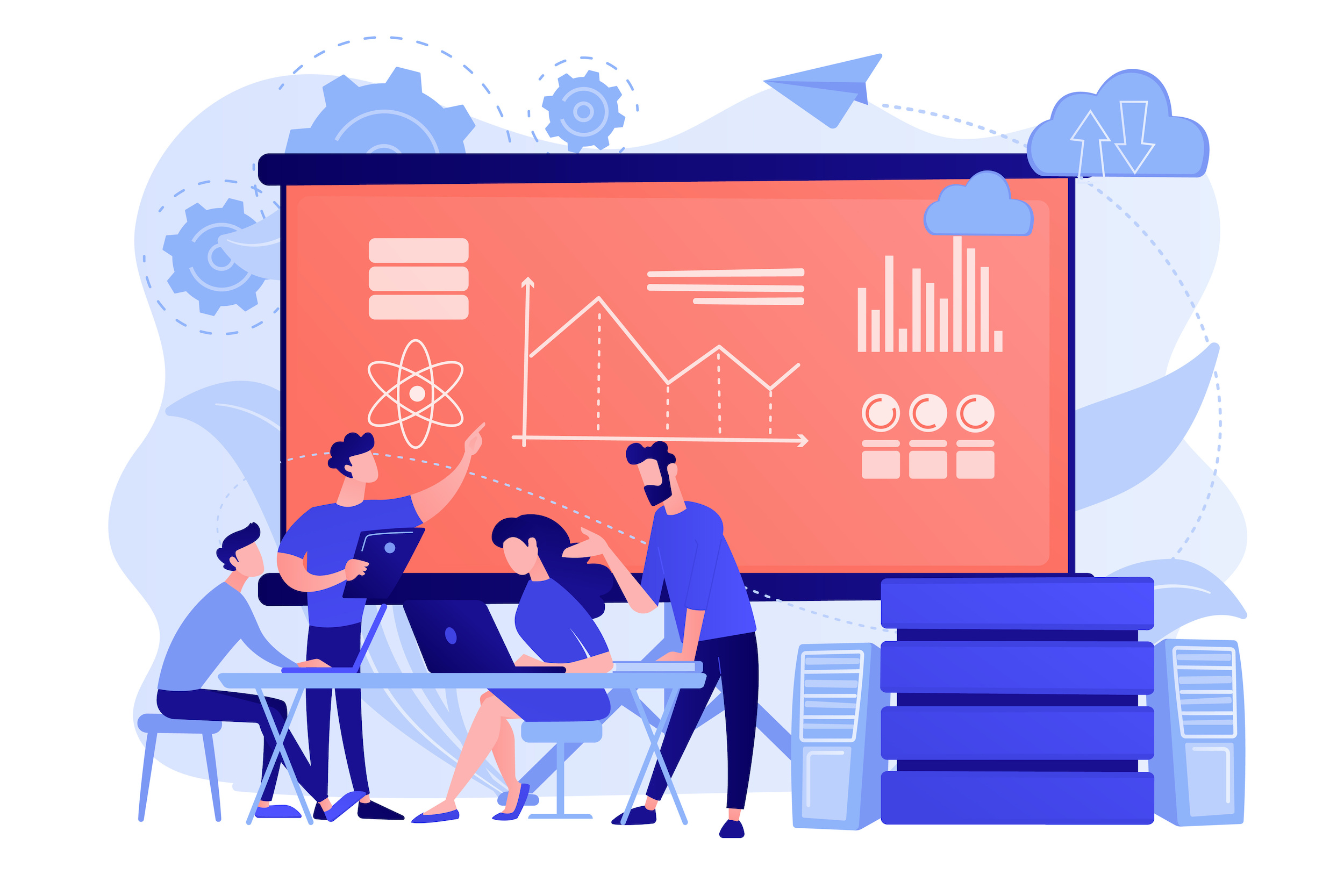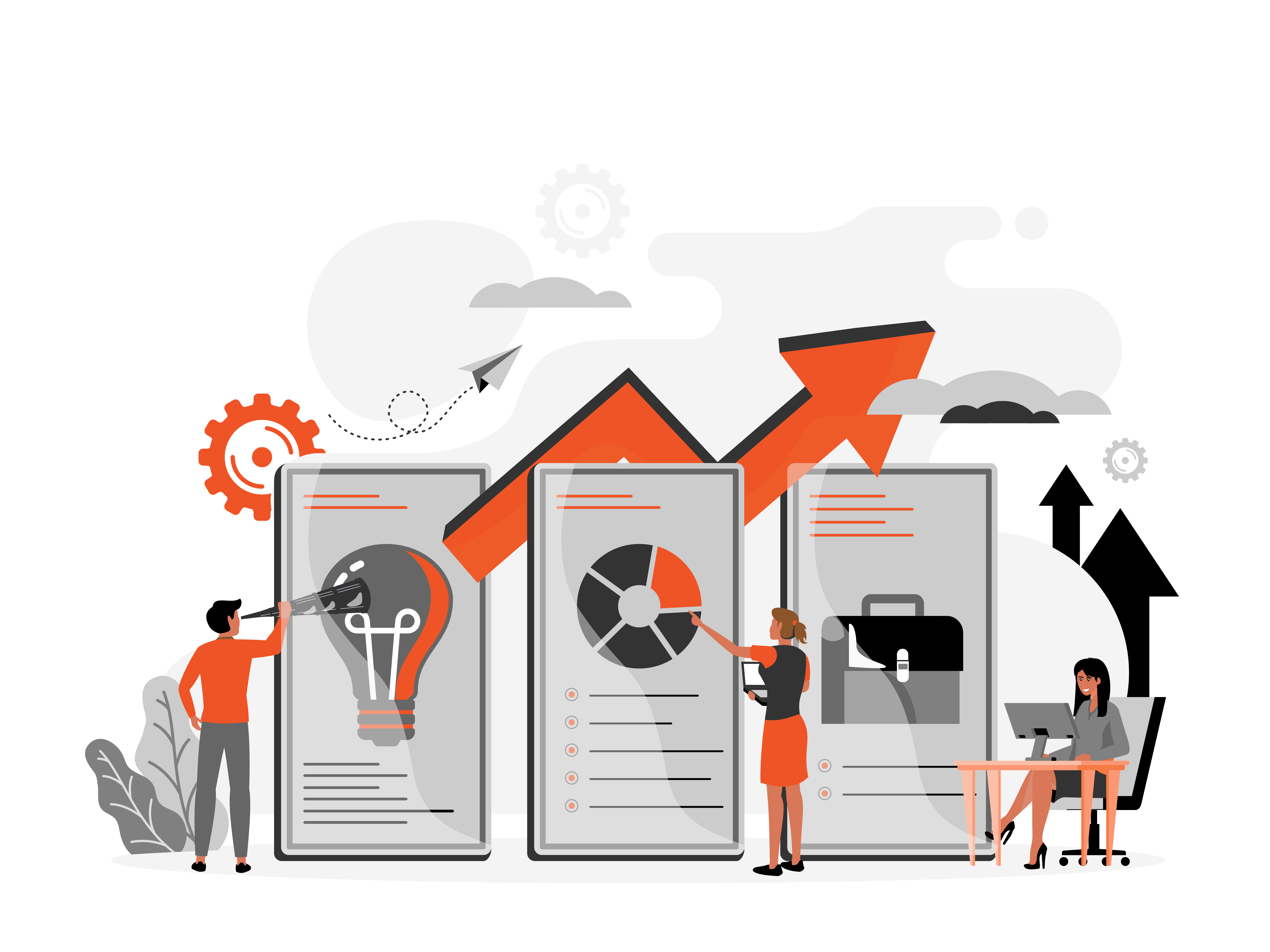
Big data and how businesses can learn from it is one of the key elements of business intelligence and has led to an explosion in the need for the right skills to help enterprises comb through large datasets and identify actionable insights.
In this context, terms such as data analytics and data science are often used interchangeably, leaving companies uncertain as to which functions and tools they need to get the best results from their data. For example, data science is often dismissed as glorified data analytics, which can’t be further from the truth. You’ll also find many articles entitled “data science vs data analytics”, which don’t make sense as the one can’t replace the other, and neither one is more important. It is essential to understand that although the two fields are very much interconnected and there is definitely some overlap, they are unique and each approach brings a very different value to your business.
Data science is an umbrella term, which encompasses data analytics. It has more of a macro scope, whereas data analysis works on a micro level. Data science is a broad field focused on identifying actionable insights from large data sets – both structured and unstructured. Data scientists often focus more on questions about the future. They build on big data to create models to predict things that will happen in the future.
It is a much more exploratory approach than data analytics – less concerned with answering specific questions but instead filtering through masses of raw data to look for broader insights. Data science experts are good at identifying questions companies didn’t know they had. They are able to write their own algorithms and build their own statistical models to estimate the unknown. The focus is on asking the right questions by predicting trends and looking for better ways to analyze a company’s data.
On a practical level, data science includes data cleansing, preparation, and analysis. A data scientist gathers data from multiple sources and applies machine learning, advanced statistical analysis, predictive analytics, sentiment analysis, and sometimes artificial intelligence, to extract critical information from the collected data sets to find solutions to problems that haven’t been formulated yet.
Data scientists often have a computer science or applied mathematics background and need a higher level of mathematics and statistical skills than the average data analyst. Specific skills to look out for when employing a data science expert or consultancy include advanced data analytics, programming, and domain knowledge, as well as:
An example of data science includes the development of algorithms to help predict patient side effects in medicine, but it can be applied in any industry.
Data analytics also deals with the understanding of big data, but data analytics falls under the broader field of data science and is more specific and focused. It entails analyzing existing or historical data sets to come up with meaningful insights to solve immediate business problems. Data analysts use a variety of tools to answer specific business-related questions, such as: Why sales have dropped in a certain quarter or why a marketing campaign may not be working in a specific region.
In other words, they analyze big data to answer more concrete questions about things that already happened.
The tools used by data analysts include data mining or data warehousing, data modeling, SAS, R, Scala and SQL, statistical analysis, database management and reporting. This approach focuses on designing and maintaining data systems within enterprises and using tools to interpret a company’s data before communicating the findings to non-technical audiences. For this reason, data analysts often need data visualization and graphic design skills, as well as excellent interpersonal, presentation and communication skills.
Even though the two fields are very different, they are also highly interrelated. Data science is crucial for those initial observations, future trends and insights. This is where you find out the questions which should be asked and which could otherwise be missed. Equally important, however, is the next step of data analytics, which focuses on answering the questions and turning them into actionable insights.
Both data analysis and data science are crucial disciplines for helping enterprises understand their data and learning to use it to enhance business intelligence, however, it also depends on the size and maturity of a company. In the case of a start-up with little historical data, for example, hiring a data scientist can sometimes amount to overkill. In this case, a data analyst may be better suited to your needs.
In the data-centric business world we live in, most businesses can benefit from data analysis because it is a key factor in better decision-making and can be applied at a more foundational level – for every company, including start-ups.
REEA GLOBAL is a full-service, global team offering software development, analytics and data transformation from concept to launch. We will analyze your business and advise on the best overarching data strategy, including data analysis and or data science, depending on your individual needs.
Contact our data experts today to learn more about how data analysis and, or data science can lead to actionable insights in your business.
In the high-stakes world of private equity, effective post-acquisition integration is crucial for maximizing investment value.This complex task involves more than just merging financial statements; it requires a comprehensive blending of systems, cultures, and operational strategies.
